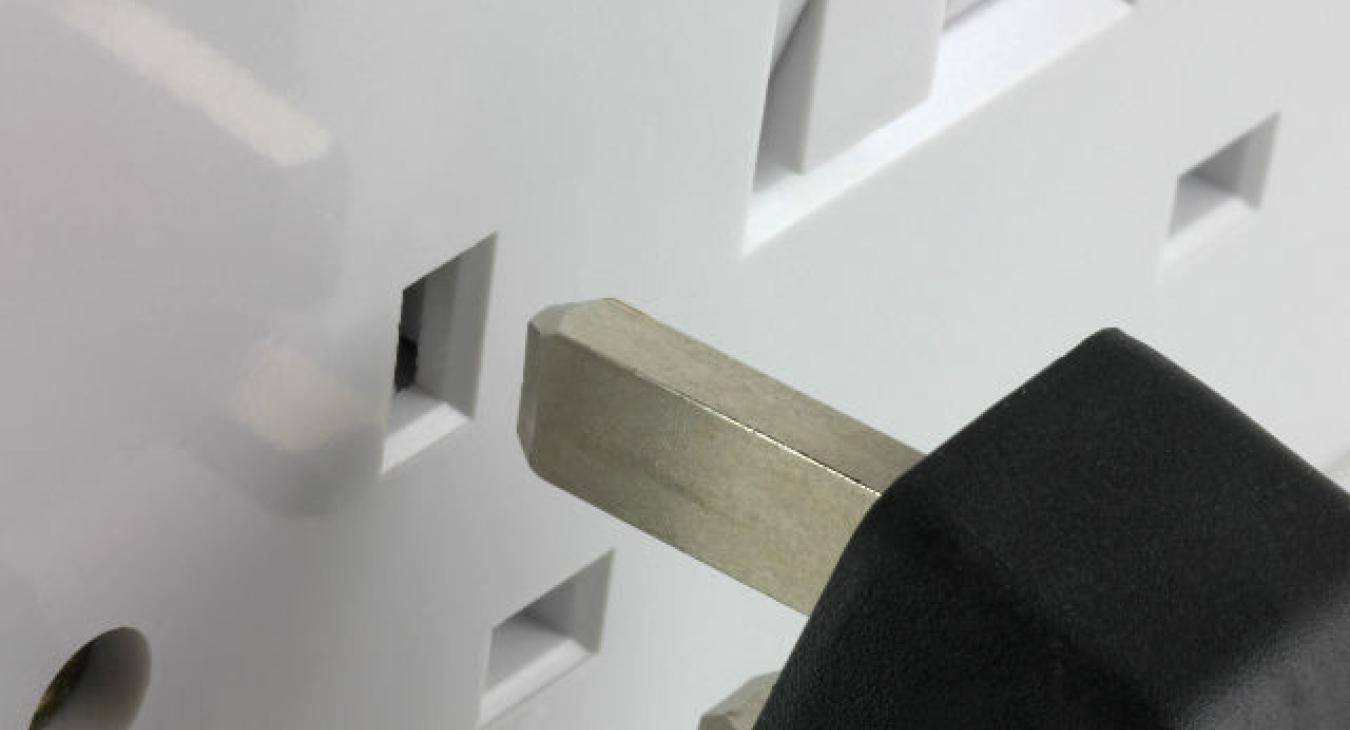
Plug sockets, plugs, electrical outlets, power outlets, whatever you choose to call them – they are an essential part of any home, providing constant power to lamps, fridges, TVs and other appliances we couldn’t live without.
Unfortunately, with power sockets often in constant use for years on end with no maintenance, they are prone to damage that may be overlooked. Not addressing damage to a plug socket as it develops can result in power failures, electrical fires and expensive remedial work.
In our latest blog post, we take a look at 6 tell-tale signs it’s time to get your plug sockets replaced along with a few top tips for extending the life of your plug sockets.
Electrics Switching Off Temporarily
If appliances plugged into your outlets are sporadically switching off and back on again, you should first check that the appliance itself isn’t faulty by plugging it into a different socket. If the appliance works fine, it could be a sign that your power outlet is damaged. This can be caused by a number of issues so it’s best to have it looked at by a professional or replaced.
Heat Scorch Marks
Corrosion, build up of dust, overloading and poor wiring can all cause power outlets to generate excessive heat when in use. If you observe any scorch marks or hot plugs and sockets, switch the outlet off at the wall before unplugging any appliances; if you don’t do this it could cause an electrical fire. Note that the socket should not be used again until it has been properly inspected.
Fuses Often Blowing
Fuses constantly blowing can be very frustrating and can be caused by a number of things. If you have a fuse that keeps blowing, try plugging the appliance into a different socket, if it doesn’t blow, then there is most likely a problem with the socket.
Cracks To The Power Outlet Plate
Over time, the plastic plates that cover plug sockets can become worn down and crack. Cracks not only expose live wires but can also pose a serious fire risk through the dust that harbours within them. If you notice a crack, you should discontinue the use of that power socket until it is fixed or replaced.
The Green ‘Goo’
This stuff has many names, but can be characterised by its green appearance and high viscosity. The goo is degraded ‘di-isotyl’, a result of the reaction between the copper and insulation found in wiring made from 1965 and 1971.
If you do notice this unwanted goo then you need to get in touch with a qualified electrician as soon as possible, dependant on the severity and scale of the issue, it could be that a rewire is needed.
Arcing Sounds
A cracking, popping or buzzing sound coming from your socket indicates that there is something severely wrong. This is called arcing and is usually caused by damaged or loose wires. Without being inspected, this could result in a blown out plug or a more severe electrical fire.
Top Tips For Preventing Damage To Your Power Sockets
There’s plenty you can do to reduce the risk of damage to your power sockets – here are a few of our top tips:
- Never buy appliances from unreputable shops or sellers. For example, cheap knock-off phone chargers have been known to damage outlets and cause electrical fires.
- Visually inspect your sockets monthly for any of the signs listed above.
- Always remove plugs from outlets carefully, avoid pulling on the wire. This is something children may do unintentionally, so make sure your children understand the dangers of electricity.
- Avoid overloading any sockets with power extension cables. You should also never plug one extension cable into the other, also known as ‘daisy chaining’, as this can cause overheating.
- Only use plugs that have the British Standard safety mark.
Your Local Friendly Electrician Bristol
At Allied Electrical, we’re happy to quote for smaller jobs such as power outlet/plug socket replacements as well as more extensive jobs such as full home rewires. In addition to regular power outlets, we can install modern outlets such as USB and HDMI.
If you need a power outlet replacing, new ones added, or require some advice on whether it’s time you had yours replaced – call us free today on Bristol: 0117 303 9000 or fill out a contact form and we’ll get back to you.










